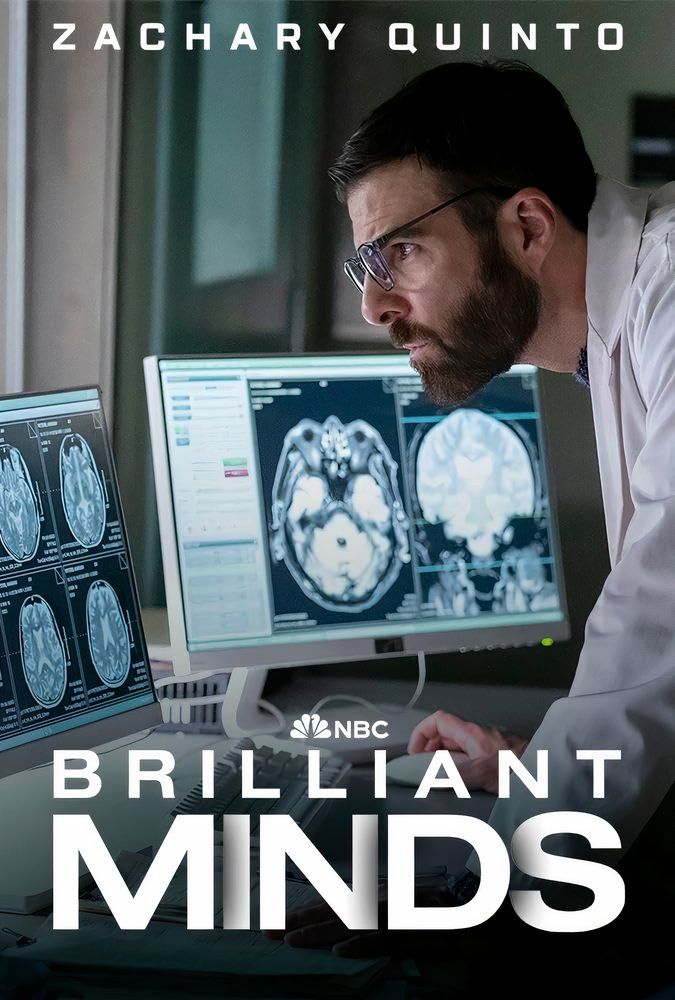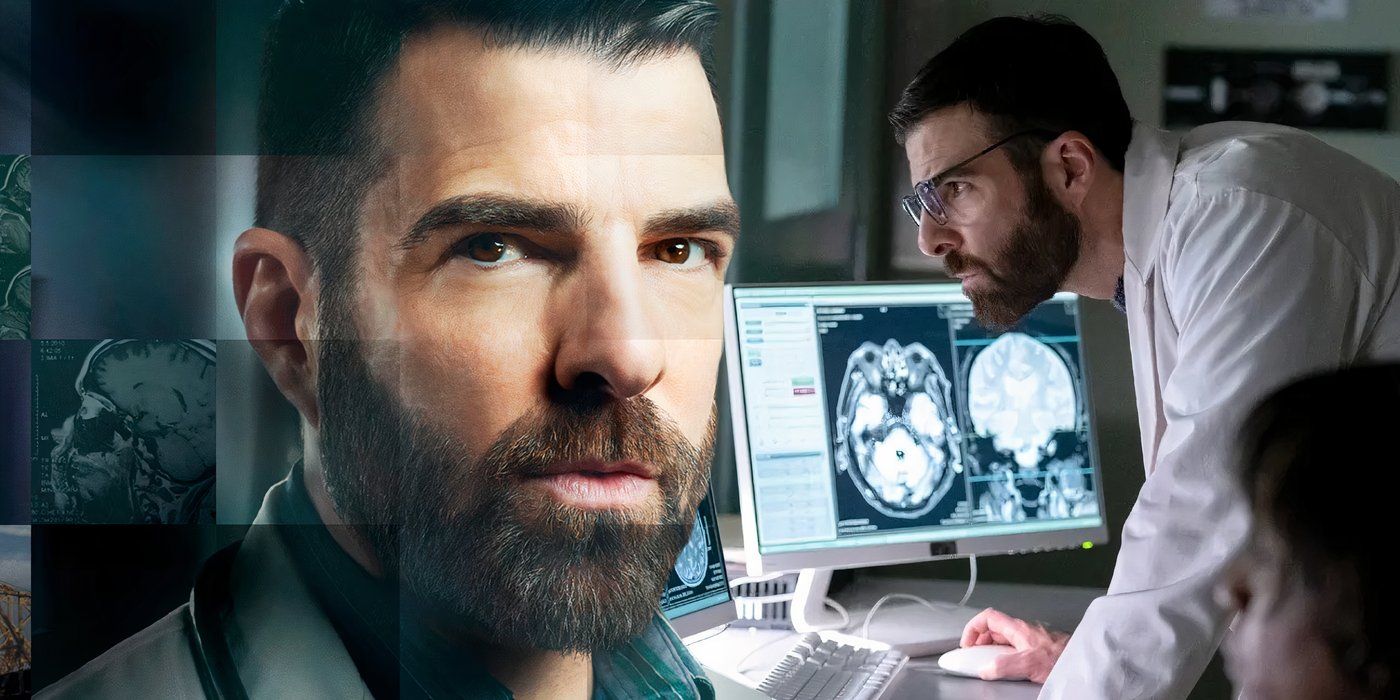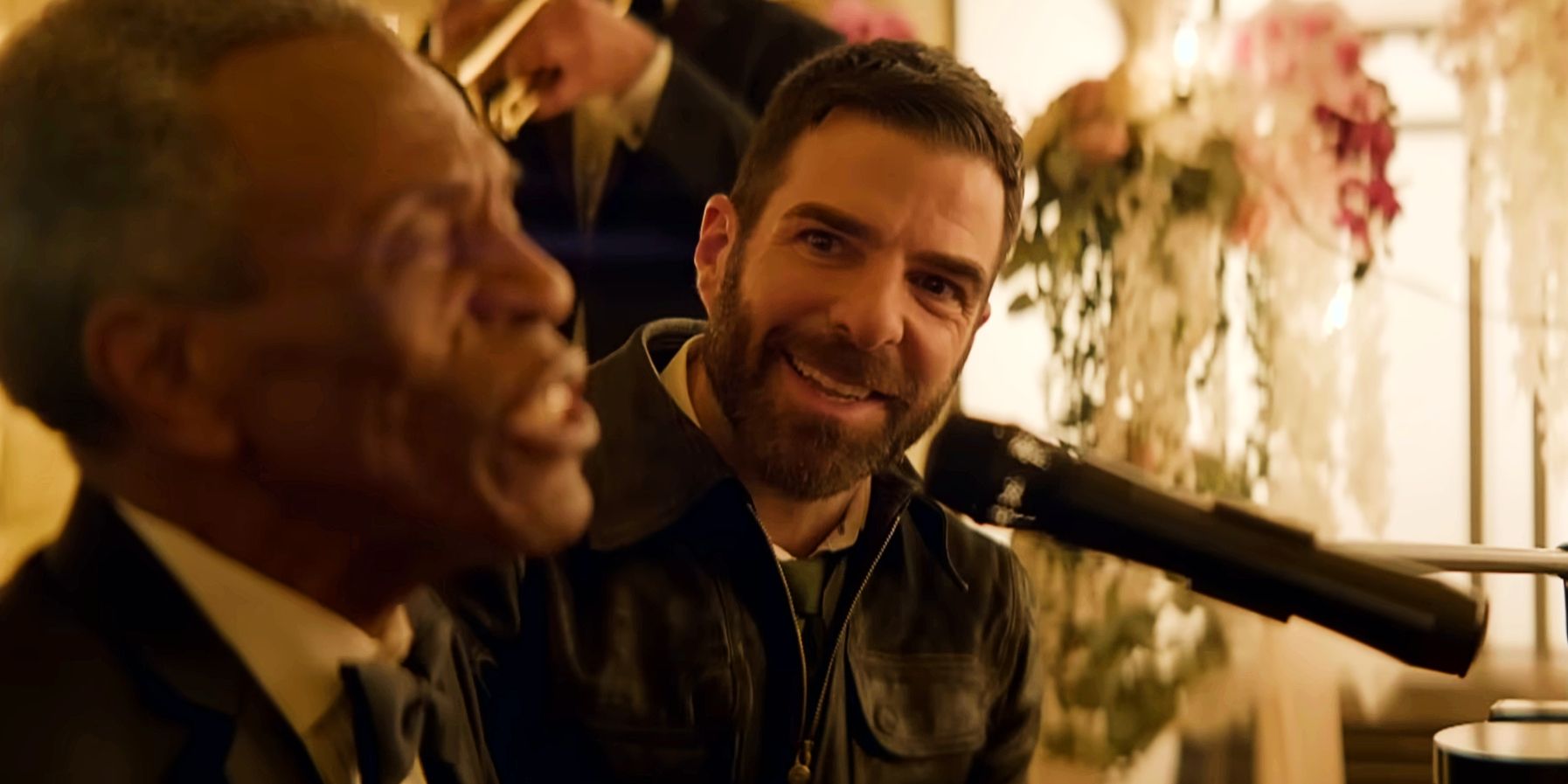Brilliant Minds
NBC’sBrilliant Mindspremiered on September 23 with new installment airing weekly on Mondays . The show is inspired by real - life physician , Oliver Sacks , and construe Zachary Quinto ( Star Trek , American Horror Story ) play a neurologist who has a condition called prosopagnosia , also known as facial blindness . After being fire from his previous problem , Oliver Wolf takes his tenacious - prison term friend up on her offer to ferment at Bronx General Hospital .
Christmas carol trust Dr. Wolf with a mathematical group of young interns , who are caught off guard by hisunconventional approach to care . However , despite Oliver ’s initial opposition to being a teacher , Quinto experience that everyone has adapted to the fresh moral force . The ace explains that their different linear perspective allow him to approach cases from all angles , which benefit the patient role in the long run . In summation to Quinto , Tamberla Perry , Ashleigh LaThrop , Alex MacNicoll , Aury Krebs , Spence Moore II , Teddy Sears , and Donna Murphymake up the principal mould .
In a crowded field of view of medical dramas , NBC ’s new series Brilliant Minds stand up apart , but will the Zachary Quinto - chair computer programme score a 2d time of year ?

ScreenRantinterviews Quinto about the material human race - renowned neurologist , how Wolf ’s prosopagnosia is a endowment , and what he admires most about hisBrilliant Mindscharacter .
Brilliant Minds Is Contextualized To Take Place In A Modern-Day Setting
“To be telling this story now is really to explore how far we’ve come and what a different world we live in.”
ScreenRant : I ’m a immense fan ofBrilliant Minds , and I would love to know your initial thought when the concept was first tilt to you .
Zachary Quinto : Thanks for saying that . I ’m glad that you ’re bask the show . I palpate most concerned in the fact that this was base on a veridical - animation person , Dr. Oliver Sacks , who was a world - renowned neurologist , who lived and worked in the main in the middle of the twentieth hundred , who made incredible , significant contributions to the bailiwick of clinical neurology and also to the subject field of literature . He was a very prolific writer .
He was considered the poet laureate of medicament by the New York Times , and he indite indefatigably about his patients and about the uniqueness of their disorders and diseases and conditions and injuries . He was very drive by this quest of understanding and accepting the patients as people , not just as illnesses . And at a time when medication has become so primarily symptomatic , it was very special , I recollect , to debate fiddle a part that was inspire by someone like that .

Custom Image by Yailin Chacon
The show prompt me to read about Oliver Sacks . What prospect of his life do you palpate are most hard contain inBrilliant judgment ?
Zachary Quinto : reasonably much every aspect of the character that I spiel is pinch directly from the spirit of Oliver Sacks . Oliver Sacks depend on motorcycles . Oliver Wolf rides motorcycles . Oliver Sacks was a gay man . Oliver Wolf is a jolly man . Oliver Sacks had prosopagnosia — confront blindness . Oliver Wolf has prosopagnosia — face blindness . Oliver Sacks had a very complicated relationship with his mother . Oliver Wolf has a very complicated relationship with his mother , who also turns out to be his Bos , so there are a lot of opportunities for them to confront the restriction of their kinship and evolve beyond them .
Oliver Sacks was celibate for 35 years of his life , and Oliver Wolf has his own complicated relationship to his identity element as a gay world , but it ’s contextualized in the modernistic world . We tell the news report of Brilliant Minds in modern 24-hour interval , present day , whereas Oliver Sacks was know and puzzle out at a time when identify as a gay man openly was an impossibility because it would ’ve utterly bound his ability to make the contributions to the field of neurology and literature that he was so singularly and unambiguously designed to make .

A renowned neurologist and his team of interns delve into the complexities of the human brain, navigating groundbreaking cases inspired by real-life disorders. As they explore this final frontier, they must also confront their own personal challenges and mental health struggles, making for an emotionally charged and intellectually stimulating drama.
And so he decide to sacrifice this aspect of himself , and I find that such a tragedy . So to be severalise this write up now , today , is really to explore how far we ’ve come up and what a different human beings we subsist in now than the one that Oliver Sacks lived in . And so for that , I ’m really grateful . And I would say that that connection to the real - life someone , while still have the chance to make the character from my resource and creative collaboration with Michael Grassi and our amazing squad of writers was such a unequalled hybrid that it was a no - brainer for me once I put all the pieces together .
Oliver Comes To See His Condition Of Prosopagnosia As An Opportunity To Evolve
“He learns how to transform his relationship to it and see it more as a gift.”
How do you experience the dissimilar steps Oliver needs to take to connect with people aid him as a doctor ?
Zachary Quinto : In the first episode of the show , they talk a lot about — I intend a lot of masses would consider the condition of prosopagnosia a real hindrance , a real obstruction , a real challenge . But I conceive that the way Oliver Wolf comes to see it is as a gift , as an chance to conform and to germinate . And so many of the guinea pig that we examine on Brilliant Minds are cases for which there really is no localization .
There really is no cure . And the people that we ’re meeting as patients on the show are mass who are having to adjust to a novel normal in their living . And so our show really does become about adaptability and about development . And I think that those are two tone that had to be embodied by Oliver Sacks and therefore have to be embodied by Oliver Wolf . He needs to be able to conform and develop himself .

And his condition of prosopagnosia is one of the primary election , most tangible ways that he does that . And by the end of the pilot , that matter that he deliberate maybe a deficit in his experience , he learns how to translate his human relationship to it and see it more as a giving and as an chance to have deep and maybe more meaningful insights into people and their experiences .
Oliver ’s friendship with Carol is so pure . What is most significant to you when it comes to shaping their onscreen dynamic ?
Zachary Quinto : Again , the kinship between Carol Pierce and Oliver Wolf on Brilliant Minds is barrack by the real - lifespan relationship between Dr. Carol E. Burnett and Oliver Sacks . They were student together , they were colleague , Carol E. Burnett was the first African American woman to graduate from the Einstein School of Medicine .

Oliver Sacks , manifestly , had his own identity as a gay man to reckon with as it use to his calling and his career . And so I consider that these two mass found each other and witness a common attachment in the things that they had to work through and get over to succeed . And so it ’s a really wonderful homage to their friendship and their relationship that Michael Grassi put the moral force between Carol and Wolf at the center of Brilliant Minds .
I know Tamberla Perry . She ’s an absolutely phenomenal actress and such a great energy on set . She ’s really such a prescribed force of nature , and I just adore her . It ’s playfulness to work with her . She keeps me on my toes , she keeps me grounded , she maintain me motivated , she keep me smiling , and I desire that that translates in the kinship between Carol Pierce and Oliver Wolf on the show .
Oliver Quickly Begins To See The Interns' Value In Brilliant Minds
“I think they make significant contributions to Oliver’s life, as well.”
Carol trust him with this grouping of young interns . How would you say Oliver feel about being a teacher , and do you think the houseman have adapted to his non - traditional coming to care ?
Zachary Quinto : Yeah , everybody accommodate to everybody on this show . And initially , Wolf is very immune to the estimate of being any kind of teacher or bureau build . I do n’t recall he want to deal with the questions and the administrative aspect of that role . I call up what he wants to do is centre on his affected role and only his patients . But I guess what he comes to find out is that the unlike perspective that the medical intern offer and lead to the cases and to the environment at the hospital , in oecumenical , is something that he benefits from in the long run .
So everybody conform to this moral force , and I retrieve reasonably quickly , Oliver sees the value of these young citizenry , and they assist him , good ? They keep going him , and they give him insights that he might not otherwise have . Part of the mood of the character is how abrupt he is from the modern - Clarence Day contemporary pop civilization world . And so the interns not only make significant contributions in the aesculapian showcase , but I cogitate they make significant contributions to Oliver ’s life , as well .

Jaden Walman depict the young Oliver Wolf . Did you two have a chance to touch theme and talk about this character ’s childhood ?
Zachary Quinto : I was around when Jaden was there , and he ’s so howling . The flashback were the uncommon moments that I really did n’t have to film , because although sometimes I am in them , we wreak with this idea of position and what these memories conjure in Wolf . And so we see the impact of some of the flashbacks on him in the present day .
But I find like Jaden ’s relationship to that story and the other actors who are involved in the flashback , their relationships to that part of the tale really percolate through Michael Grassi , through our showrunner , and so I cerebrate it was more significant for him to be overseeing that than for me to be involved in them . I want Jayden to have his own experience of the role . He ’s tell story from a dissimilar perspective and a different time in Wolf ’s life-time .

It did n’t feel necessary for me to meddle in his interpretation , or his portrayal , of the type . mayhap I learned that from Leonard Nimoy when I took over Spock . There were n’t a lot of prescriptive conversations about how to play the role . It was much broader and much more originative collaboration with Leonard . And so I just tried to give Jaden his space , and I thought he did a really beautiful job , and I feel like Michael was the one who was orchestrating all of the different aspects of the stories .
We ’ve seen how much Oliver give care about his patients , but what do you in person admire most about him as a medico ?
Zachary Quinto : His capacity to hold the experience that he ’s having along with his patients . I remember his capacity for compassion and empathy and this dilate consciousness that he ’s clearly spent time and a lot of vim and resources in his own life cultivate . I think , to me , that ’s the most square look of the human experience in my journeying so far . It ’s really one of the most admirable qualities of this character reference as a reflection of the real - life person . I remember it was one of the most admirable qualities of Oliver Sacks as well .
About NBC’s Medical Drama Brilliant Minds
Michael Grassi serves as creator, writer, and executive producer
inhale by the extraordinary aliveness and work of Earth - famous author and MD Oliver Sacks , “ Brilliant Minds ” come a radical , larger - than - life neurologist and his team of interns as they explore the last great frontier – the human head – while make do with their own relationships and mental wellness .
Check out our other interview with theBrilliant Mindscast :
Brilliant Mindsairs Mondays on NBC at 10 p.m. ET .
A renowned neurologist and his team of interns delve into the complexity of the human brain , navigating groundbreaking cases inspired by tangible - life disorders . As they search this final frontier , they must also confront their own personal challenges and mental health struggles , form for an emotionally charge and intellectually stimulate drama .